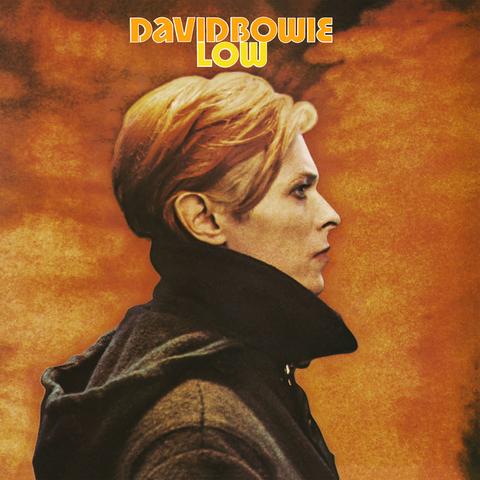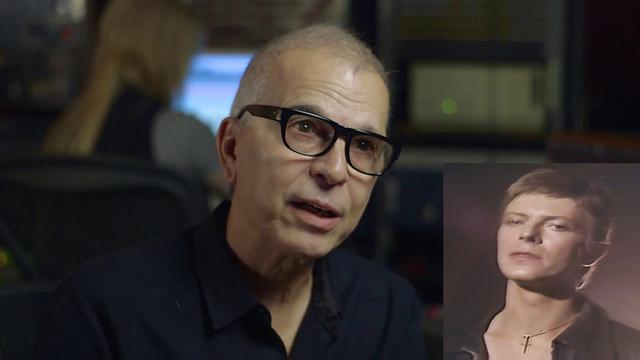Recent searches
Search options
#TonyVisconti
T. Rex, T. Rextasy: The Best of T. Rex, 1970-1973, 1985 on Warner Bros.
Mid-eighties compilation of T. Rex. Between 1970 and 1973, the band had eleven top 10 singles in the UK – including many here. Produced by Tony Visconti.
I came to T. Rex indirectly through The Replacements (who covered “20th Century Boy” on Let it Be), Bauhaus (who covered “Telegram Sam”) and The Power Station (who covered “Bang a Gong”) as well as all the Bowie intersections and references.
My copy, via Beverly Coin & Jewel in Beverly MA, included an ad for Marc Bolan on Video – available in VHS or Beta from Passport Music / JEM (see image below).
#1970 #1973 #1985 #BeverlyCoinJewel #BeverlyMA #MarcBolan #Reissue #TRex #TonyVisconti #vinyl #vinylcollection #vinylfinds #WarnerBrothers
David Bowie – Low (1977, UK)
[This guest post was written by Brook Ellingwood (aka @theotherbrook) about number 537 on The List, to coincide with its spot in our #BowieADay listening schedule.[1] The album was submitted by buffyleigh.]
On first listen David Bowie’s 1977 album Low can seem a cold and sterile affair. Getting to its heart takes some effort and, apparently, at least a thousand words or so.
The influence of minimalist and electronic German bands like Neu!, Kraftwerk, and Tangerine Dream is all over the record, making it not just stark but also a stark departure from the sound of his last single, the danceable funky “Golden Years.” But the title track of the album that song came from, Station to Station, was the first clear movement in the direction of Low and the two following albums that have in retrospect been dubbed Bowie’s “Berlin Trilogy.”
Despite that label, nearly all the instruments on Low were actually recorded at France’s Château d’Hérouville, forever memorialized in the title of Elton John’s album Honky Château. Fearing for his physical and mental health Bowie decamped for Europe, leaving the cocaine-fueled life he was leading in Los Angeles along with the “would-be romantic with absolutely no emotion” Thin White Duke persona he’d adopted. He reached out to Iggy Pop with an offer both to produce an album for him and to give him a similar chance to escape the environment driving his own addictions.
The Idiot, Pop’s first album without the Stooges, features him singing his lyrics over backing tracks on which Bowie is moving even farther towards the German bands’ sounds. It’s the music of two friends in recovery intentionally shedding their old skins. The music of German artists declaring freedom from their nation’s recent history fit the mood. (Given that some of what Bowie was shedding was a perceived fascistic side to the Thin White Duke may further explain the attraction.)
Maybe what’s most “Berlin” about Low isn’t the music that influenced it, or that recording finished there. The album evokes a feeling of disconnectedness one imagines was familiar in a city cut in two by a wall, the western half surrounded by antagonistic authoritarianism while retaining the freedoms of another Germany some 200 kilometers away. When Bowie arrived in Berlin he fell in love with the city.
I feel that its coldness makes Low second only to Bowie’s wrenching Blackstar swan song as his most emotionally honest record. Side One is bracketed by two instrumentals; “Speed of Life,” the most propulsive piece on the album which can be interpreted as his coke years put to music, and “A New Career in a New Town” with its minor key piano figure and harmonica (the first time Bowie had played it on a recording since 1972’s “The Jean Genie) openly declaring his decision to make a break and start over.
Between those instrumentals, the lyrics of five vocal songs are snapshots of a life out of control. “Baby, I’ve been / Breaking glass in your room again…” “I’m always crashing in the same car…” “Please be mine / Share my life /Stay with me / Be my wife…”
Having put his past on Side One, Bowie felt free to make Side Two his present. Brian Eno joined him to collaborate on those four songs, pushing the band Bowie had assembled into entirely new territory. It’s tempting to think of the side as instrumental but Bowie does sing on three of the songs. It’s just that the singing is devoid of discernible lyrics, his voice becoming another atmospheric instrument wordlessly describing both a certain kind of Cold War European bleakness and his own emotional condition.
There was no certainty that RCA would even release the album when they heard it. The label’s first reaction was to tell him to go back to the studio and make something more like Young Americans.
When he refused their second reaction was to postpone its release, dumping it on the market in the post-Christmas doldrums without any significant promotion. Bowie himself seemed to treat it more as something he’d done for personal instead of business reasons and declined to perform in support of it. Instead he went on tour as Iggy’s keyboard player.
Even perceptive and forward-looking critics were initially perplexed by Low. But as the next two Berlin Trilogy albums, Heroes and Lodger, expanded and contextualized this new direction they began to reassess their earlier reviews. Now it’s not unusual to see the album declared as perhaps Bowie’s best, and boldest, work.
Leaving behind the characters he’d been filtering his work through is what gives Low its sense of icy intimacy. And if the album is a personal one for Bowie, my own attachment to it is personal as well.
At 12 or 13, I was interested in knowing more Bowie than I’d heard on the radio but didn’t have much in the way of expendable income. So I bought the only album of his I found in the closeout bin. Low wasn’t just my first Bowie album, it was one of the first three or four albums I owned period, and listening to it over and over on my jerry-rigged bedroom stereo probably did something permanent to my synapses. Before long, he would return to a poppier style with the release of Scary Monsters and I’d learn his discography much more completely, but I’d never give up my experience of Low as an entry point.
Bowie was never shy to put theatrical emotions into his singing but these songs, even the wordless ones, are largely sung in a flat affect stripped of pathos and lacking showy vocal runs. Along with the startlingly different sound producer Tony Visconti found on the album by running drums through an Eventide harmonizer, that vocal style was to become a major influence on post-punk acts a few years later. Joy Division even first performed under the name Warsaw, taken from Side Two, track one, “Warszawa” the Polish name for the city.
Maybe what Low shows us that David Bowie actually was the alter-ego of David Bowie, a pretend sophisticated pop star persona assumed by an art rocker who every now and then took off the mask and made music as himself.
Happy anniversary to David Bowie’s album, ‘Low’. Released this week in 1977. #bowie #davidbowie #icon #legend #bowieismylordandsavior #imjustaspacecadetandhesthecommander #bowieforever #low #soundandvision #bemywife #breakingglass #brianeno #tonyvisconti
https://open.spotify.com/album/2de6LD7eOW8zrlorbS28na?si=UEJMs6I7Sw-0CAPhXLAEdw




